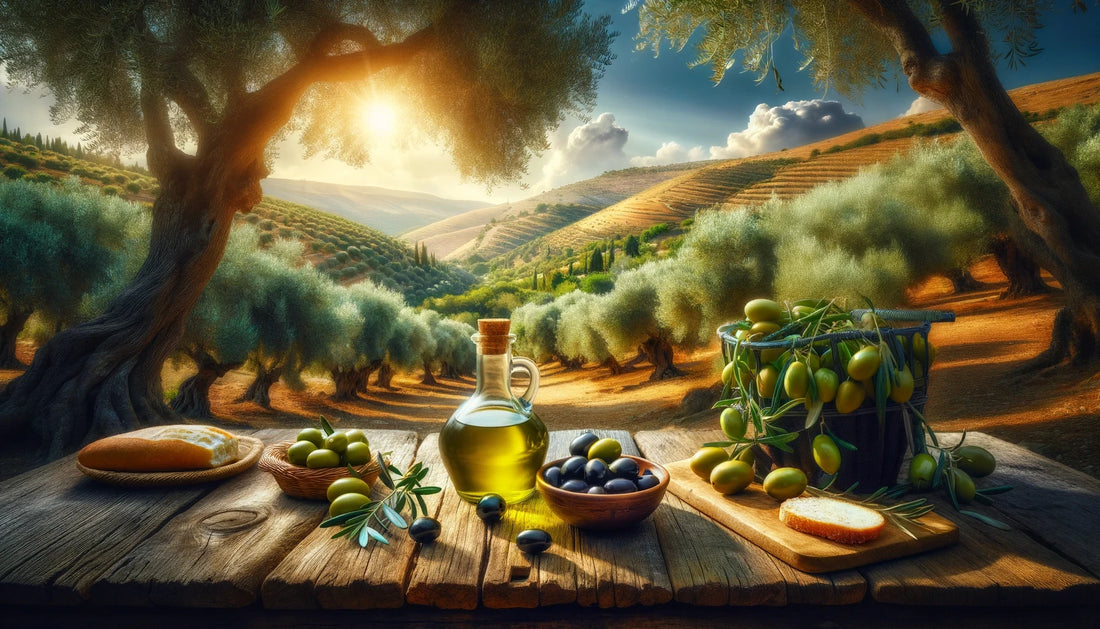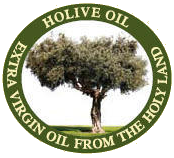
Israeli olive oil from Biblical times to today
Share
Olive oil has been a big deal in the Mediterranean for thousands of years, and it's especially significant in Israel. This ancient Holy land, steeped in Biblical stories and cultural heritage, has been producing olive oil since forever. Olive oil is frequently mentioned in the Bible and has played a huge role in daily life and trade in Israel.
Biblical Origins
Olive Oil in Ancient Texts
Olive oil is all over the Hebrew Bible, showing up in countless stories and rituals. It wasn't just for cooking—it had deep symbolic meaning too. Olive oil was used for anointing kings and priests, symbolizing sanctity and divine blessing."Then Samuel took the horn of oil and anointed him in the midst of his brothers; and the spirit of the Lord came mightily upon David from that day forward" (1 Samuel 16:13).
Early Cultivation Practices
The ancient Israelites were pretty savvy when it came to cultivating olives. Archaeological finds show that they had extensive olive groves and sophisticated methods for producing olive oil. They used stone presses to extract the oil, a process that was both labor-intensive and meticulous. These early methods laid the foundation for the rich olive oil tradition that continues in Israel today.In those times, olive oil wasn't just a staple in the diet but also a critical part of religious ceremonies and daily life. It was burned in lamps to provide light, used as an offering to God, and even applied as a healing balm.
"And they shall take olive oil for the light, to cause the lamp to burn always" (Exodus 27:20).
The purest of olive oils was used to light the Menorah in the Holy Temple in Jerusalem, symbolizing purity and divine presence. The reverence for olive oil in ancient Israel speaks volumes about its significance in the culture and the daily lives of the people.
From these beginnings, the cultivation and use of olive oil have grown and evolved, but its importance has remained unchanged. It's amazing to see how the practices and values from Biblical times still influence the way olive oil is produced and appreciated in Israel today.
Olive Oil in Ancient Israelite Society
Economic Importance
In ancient Israel, olive oil was much more than a kitchen staple—it was a valuable commodity that played a significant role in the economy. Olive oil was traded extensively, both locally and internationally. It was a sought-after product, often bartered for goods and services, making it a crucial part of trade routes that connected Israel to neighboring regions.Olive oil production was a significant industry, with olive presses and storage facilities being common sights. These facilities were not just for local consumption but also for export, making olive oil a key player in the economic landscape of ancient Israel. The wealth generated from olive oil trade contributed to the prosperity of many communities and helped to establish Israel as an important hub of trade and commerce in the ancient world.
"Judah and the land of Israel were your traders; they exchanged for your merchandise wheat of Minnith, millet, honey, oil, and balm" (Ezekiel 27:17).
Daily Life and Diet
Olive oil was indispensable in the daily lives of ancient Israelites. It was a fundamental part of their diet, used for cooking, baking, and dressing food. The rich, flavorful oil added depth and nutrition to their meals, making it a dietary cornerstone. Bread dipped in olive oil was a simple yet nourishing meal then and still is today.The uses of olive oil went beyond the kitchen. It was used as fuel for lamps, providing light in homes and fueling the eternal light of the Menorah in the Holy Temple. Olive oil was appreciated for its medicinal properties and was used to treat wounds and ailments.
"From the sole of the foot even unto the head there is no soundness in it; but wounds, and bruises, and putrefying sores: they have not been closed, neither bound up, neither mollified with oil" (Isaiah 1:6).
Olive oil was the lifeblood of ancient Israelite society, supporting both the economy and the well-being of its people. Its presence in every aspect of life, from food to medicine to trade, underscores its profound impact on the culture and daily life of the ancient Israelites.
The Roman and Byzantine Eras
Technological Advancements
The Roman and Byzantine periods brought significant advancements in olive oil production. The Romans, known for their engineering prowess, introduced more efficient olive presses and better storage methods. These innovations included the use of lever and screw presses, which allowed for greater yields and better-quality oil.
Olive cultivation expanded under Roman rule, with large estates dedicated to producing olive oil not just for local use but for export throughout the Roman Empire. The infrastructure improvements, such as roads and trade networks,
facilitated the widespread distribution of olive oil, making it a staple in many households far beyond Israel’s borders.
Cultural Integration
During these eras, olive oil’s role in daily life and culture only grew. The Romans and Byzantines integrated olive oil into their own culinary and medicinal practices. It became a common ingredient in Roman cuisine, used in everything from cooking to body care. The Byzantines, inheriting and expanding on Roman traditions, continued to value and utilize olive oil extensively.Art and literature from these periods often depicted scenes of olive harvesting and oil production, highlighting its importance. Pliny the Elder, a friend of the Roman emperor Vespesian, a naturalist, military commander, and philosopher, was a fan of early-harvest olive oil. He wrote in his "Natural History":
"The first oil of all, produced from the raw olive before it has begun to ripen, is considered preferable to all the others in flavour."
Olive oil also played a role in religious ceremonies, similar to its use in ancient Israelite traditions, maintaining its symbolic significance across different cultures and religions.
Olive oil features prominently in Christian teachings. It was a healing agent and a symbol of compassion and care.
In the parable of the Good Samaritan, olive oil is used for its healing properties: "He went to him and bandaged his wounds, pouring on oil and wine" (Luke 10:34).
Olive oil was used in Christian rituals, such as anointing and sacraments, symbolizing purity and divine blessing. "Is anyone among you sick? Let them call the elders of the church to pray over them and anoint them with oil in the name of
the Lord" (James 5:14).
Medieval Period and the Crusades
Continuation of Olive Oil Production
Despite the upheavals of the medieval period and the Crusades, olive oil production in Israel persisted. Many ancient groves and traditional methods were preserved, continuing the legacy of olive cultivation. The Crusaders, recognizing the value of olive oil, incorporated it into their own practices and trade. Archaeological excavations in the Crusader site Apollonia-Arsuf (a Crusader castle overlooking the Mediterranean sea north of Tel Aviv) have revealed several olive presses.
Back to the Future
Fast forward to today. Israel has always been particularly suited to the cultivation of olive trees - as the Bible descibes, it is "A land of wheat, and barley, and vines, and fig trees, and pomegranates; a land of oil olive, and honey" (Deuteronomy 8:8) Today in Israel, age-old practices are married to modern techniques to enhance the quality and yield of olive oil. As a result, Israeli olive oil is among the best in the world, with a richness and depth of flavor that elevates any dish, and a purity and healthfulness second to none.
Try some and see for yourself! You won't be sorry.



